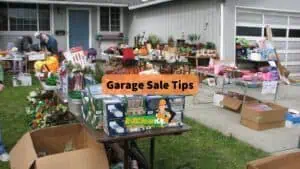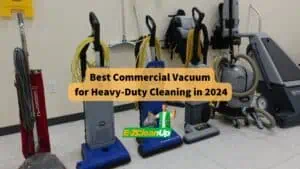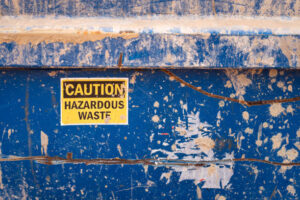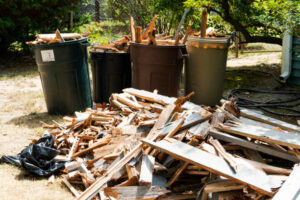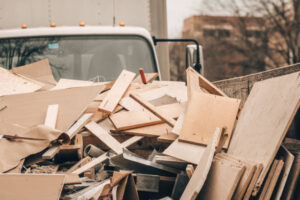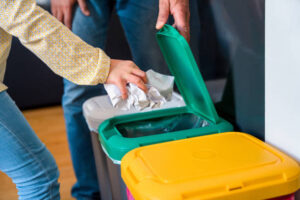The garage has become America’s most cluttered space, and Philadelphia homeowners are no exception to this nationwide trend. According to a CRAFTSMAN survey, more than 60% of Americans with garages feel their garage is the untidiest area in their house, while another survey by the National Association of Professional Organizers found that 50% of homeowners named the garage as the most disorganized area of their house. With over 82 million garages in the U.S., the struggle to maintain an organized garage space is a challenge millions of American families face daily.
For Philadelphia homeowners specifically, effective garage organization isn’t just about aesthetics – it’s about maximizing your home’s functionality, protecting valuable investments, and creating space in a city where every square foot matters. This comprehensive guide will walk you through the best practices for conducting a thorough garage cleanout while making the most of Philadelphia’s unique disposal and recycling resources.
The Current State of American Garages: Eye-Opening Statistics
Before diving into specific cleanout strategies, it’s important to understand just how common garage clutter has become. The statistics paint a clear picture of why garage organization has become such a priority for homeowners:
Parking Problems
A Garage Living poll of 1,500 North American respondents found that 20% said they were unable to park in their garage, while a Sparefoot survey of 1,000 Americans found that 47% admitted to encountering problems with being able to park in their garage. Additionally, a UCLA study of 32 Los Angeles-area families found that 75% didn’t use their garages for parking.
The statistics for two-car garages are particularly telling: 25% of people with 2-car garages don’t park in them at all, while a third can only park one car, largely due to garage clutter. This means that homeowners are leaving thousands of dollars worth of vehicles exposed to Philadelphia’s weather elements – including snow, ice, hail, and temperature fluctuations – to make room for stored items.
Storage Habits and Preferences
When asking Americans with garages about items stored in their garage, nearly 80% reported power tools and hand tools as the top products in their space, while 76% keep outdoor tools and equipment inside. In fact, 67% of adults with garages say they have so many tools, that keeping them organized is a must.
When asked about storing outdoor equipment, 62% of those with garages reported they keep their leaf blower in their garage, followed by string trimmers (57%), walk-behind lawn mowers (51%), hedge trimmers (49%) and chainsaws (48%).
The Multi-Purpose Garage Trend
For many Americans, the garage has become an extension of the home with modern functions such as living areas, home gyms and workspaces. The CRAFTSMAN Take Back Your Garage Survey found that 53% of U.S. adults use their garage or workspaces in their home for DIY projects.
Of those surveyed, 27% of people use the garage for hobbies, while others use it to work on cars (23%), do projects such as woodworking or carpentry (19%) or as an area for exercise or sports (13%).
Why Garage Organization Matters for Philadelphia Homeowners
Property Value and Real Estate Considerations
Of the 500 realtors surveyed, 79% agreed that garages deserved as much attention as any other space in the home when it comes to organization, while 88% believe that maintaining an organized garage reflects an owner’s pride in their home. When purchasing a home, 80% of buyers factor in the garage when making their decision.
Climate Protection
Philadelphia experiences a full range of weather conditions throughout the year, from humid summers to snowy winters. An organized garage that can actually accommodate vehicles provides crucial protection for cars, motorcycles, and other valuable equipment from the elements.
Space Maximization
A 2-car garage in an average-sized home comprises approximately 13-15% of the home’s overall square footage. In Philadelphia, where urban space comes at a premium, making the most of this significant square footage is essential for homeowners.
The Growing Storage Market
According to urban and tech writer Patrick Sisson, “One in 11 Americans pays an average of $91.14 per month to use self-storage, finding a place for the material overflow of the American dream.” Storage facilities are a $38 billion industry. Remarkably, 65% of all self-storage renters have a garage. This suggests that many homeowners are paying for external storage while their garages remain unusable due to clutter.
Phase 1: Pre-Cleanout Planning and Assessment
Set Realistic Goals
Only 11% of homeowners say they’re satisfied with their garage and wouldn’t want to improve it. Three out of four homeowners surveyed said they wish their garage was better organized. If you’re among the 89% who want to improve your garage, start by defining specific, achievable goals.
Ask yourself:
- Do you want to park one or both cars in the garage?
- Are you creating a workshop or hobby space?
- Do you need seasonal storage organization?
- Is this primarily about decluttering or complete reorganization?
The Shocking Reality Check
One third of homeowners don’t even know what is stored in their garage. Before beginning your cleanout, conduct a thorough inventory. Take photos of different areas and create a rough list of major item categories. This baseline assessment will help you track progress and make better decisions about what to keep, donate, or dispose of.
Timing Your Cleanout
Plan your garage cleanout during mild weather when you can work comfortably with the garage door open. Spring and early fall are typically ideal in Philadelphia, as you’ll have good weather for sorting items outside and won’t be dealing with extreme temperatures.
Phase 2: The Three-Category System
Category 1: Keep and Organize
Items in this category should meet at least one of these criteria:
- Used within the past 12 months
- Seasonal items you know you’ll need
- Tools and equipment in good working condition
- Items with significant monetary or sentimental value
- Safety equipment and emergency supplies
Category 2: Donate or Sell
Philadelphia offers numerous donation opportunities for items in good condition:
Goodwill Locations: Multiple locations throughout Philadelphia accept household items, clothing, and small appliances.
Salvation Army: Offers both drop-off locations and pickup services for larger items.
Local Charities: Many neighborhood organizations accept donations of tools, sporting goods, and household items.
Online Marketplaces: Facebook Marketplace, Craigslist, and OfferUp are popular for selling valuable items locally.
Category 3: Dispose Responsibly
This is where understanding Philadelphia’s specific disposal options becomes crucial.
Phase 3: Philadelphia-Specific Disposal Resources
City of Philadelphia Waste Management Services
Philadelphia residents can drop off oversized trash, yard waste, recycling, and other items at six sanitation convenience centers around the city. All six centers are open Monday through Saturday, from 8 a.m. to 6 p.m.
The city also offers bulk trash collection service by appointment for residential properties in Philadelphia, including single-family homes and multi-family dwellings with up to six units.
Professional Junk Removal Services
1-800-GOT-JUNK?
Offers same-day junk removal throughout Philadelphia if you book early enough, and they do their very best to recycle and donate to local Philadelphia charities, keeping as much junk out of landfills as possible.
JDog Junk Removal
Provides full-service junk removal services in Philadelphia and surrounding areas, and is proud to responsibly donate and recycle 60% to 80% of the items they haul.
Hazardous Waste Disposal
Philadelphia provides safe disposal methods for hazardous waste at collection sites and events. This includes:
- Paint and automotive fluids
- Batteries
- Pesticides and chemicals
- Propane tanks
Electronic waste should be taken to a sanitation convenience center.
Phase 4: Electronic Waste (E-Waste) Disposal in Philadelphia
Electronic waste disposal deserves special attention for Philadelphia homeowners. In 2013, Pennsylvania passed the Covered Device Recycling Act (CDRA), which made it illegal to dump electronics at the curbside.
What Constitutes E-Waste
Desktop computers, laptop computers, computer peripherals such as printers, keyboards, monitors, tablets like iPads and Kindles, and televisions with viewable screens larger than four inches can no longer be disposed of in state landfills. According to the Pennsylvania Covered Device Recycling Act (CDRA), all e-waste must now be recycled.
Philadelphia E-Waste Options
Philadelphia creates around 1.5 million tons of residential and commercial waste annually, with electronics and textiles comprising about 10% of the city’s waste stream.
City Sanitation Convenience Centers
Philadelphia Sanitation Convenience Centers accept e-waste, including computers, monitors, televisions, and other computer-related equipment.
eForce Recycling
Located at 3114 Grays Ferry Avenue, Philadelphia, PA 19146, eForce Recycling accepts electronics and assures that the highest environmental value is achieved with all obsolete material demanufactured onsite.
Retrievr Service
Through a partnership with Retrievr, Philadelphia residents can schedule doorstep pickup of unwanted clothing and electronics for recycling.
Phase 5: Organization Systems and Storage Solutions
Vertical Storage Solutions
Utilizing unused wall space in a garage with vertical storage solutions such as a track wall and investing in mobile and expandable tool chests provide functional and flexible storage solutions that can grow with homeowners.
Zone-Based Organization
Try dividing your garage into “zones” with specific areas for lawn and garden equipment, sporting goods, tools and other hobbies.
Consider creating these zones:
- Automotive Zone: Car care supplies, tools, and maintenance items
- Seasonal Zone: Holiday decorations, seasonal clothing, camping gear
- Garden Zone: Lawn mowers, fertilizers, gardening tools
- Sports Zone: Bicycles, sporting equipment, outdoor recreation gear
- Workshop Zone: Power tools, hardware, project supplies
The Growing Garage Organization Market
The global garage organization and storage market size was estimated at USD 23,300.6 million in 2022 and is projected to reach USD 41,291.8 million by 2030, growing at a CAGR of 7.4%. The garage organization and storage market in the United States is expected to reach a projected revenue of US$ 5,490.1 million by 2030, with a compound annual growth rate of 7.7% expected from 2023 to 2030.
Phase 6: Maintaining Your Organized Garage
Regular Maintenance Schedule
55% of Americans spend 1-2 hours each week in the garage doing hobbies and other activities. Build maintenance into this routine:
- Weekly: Quick tidy-up and return items to designated zones
- Monthly: Sweep floors and check for new clutter accumulation
- Seasonally: Rotate seasonal items and reassess storage needs
- Annually: Conduct a mini-cleanout to prevent re-accumulation
Avoiding Common Pitfalls
Disorganization (not lack of space) causes 80% of household clutter. The key to maintaining an organized garage is establishing and following systems rather than simply acquiring more storage solutions.
One out of five homeowners have actually gotten into an argument with their spouse about the organizational state of their garage. Establish clear agreements about garage organization responsibilities and systems to avoid family conflicts.
Cost Considerations and Return on Investment
Professional Services vs. DIY
While professional junk removal services provide convenience, Philadelphia homeowners should weigh costs against benefits. To prepare for junk removal pickup, create a detailed inventory of items and divide them into three categories: keep, donate, and dispose. Remember to clear out closets, basements, and attics, and only donate items in good condition.
Potential Savings
Consider these financial benefits of an organized garage:
- Reduced storage costs: Avoid the average $91.14 per month that one in 11 Americans pays for self-storage
- Vehicle protection: Protect your car investment from weather damage
- Item accessibility: Reduce replacement purchases by knowing what you own
- Home value: Contribute to overall property appeal and value
Environmental Impact and Community Responsibility
The Bigger Picture
Philadelphia set the ambitious goal of producing zero waste by 2035. Your garage cleanout can contribute to this citywide sustainability effort.
Properly disposing of electronic waste prevents toxic materials from getting into the local environment and helps safeguard Philadelphia for future generations. Electronics that end up in landfill can leach dangerous substances into the ground, potentially damaging the local ecosystem for years to come.
Supporting Local Economy
By choosing local donation centers, repair services, and Philadelphia-based junk removal companies, you’re supporting the local economy while responsibly managing your household waste.
Conclusion: Taking Action on Your Philadelphia Garage Cleanout
Garage organization isn’t just about creating a tidy space – it’s about maximizing your home’s functionality, protecting your investments, and contributing to your community’s environmental goals. With a game plan, taking pride in the garage, eliminating waste and maximizing space, tackling a garage organization project becomes much easier.
Philadelphia homeowners have access to excellent resources for responsible disposal, from city-operated convenience centers to professional services that prioritize recycling and donation. The key is taking that first step toward decluttering and then maintaining the systems you put in place.
Remember that an ideal garage organization system grows with homeowners as they grow, while providing functional, flexible storage options. Start with a thorough cleanout using Philadelphia’s disposal resources, implement organization zones that work for your family’s needs, and establish maintenance routines to keep your garage functional for years to come.
The statistics show that most homeowners are dissatisfied with their garage organization, but with proper planning and the right resources, your garage can become a source of pride rather than frustration. Take advantage of Philadelphia’s comprehensive waste management and recycling programs to ensure your cleanout benefits both your home and your community.





